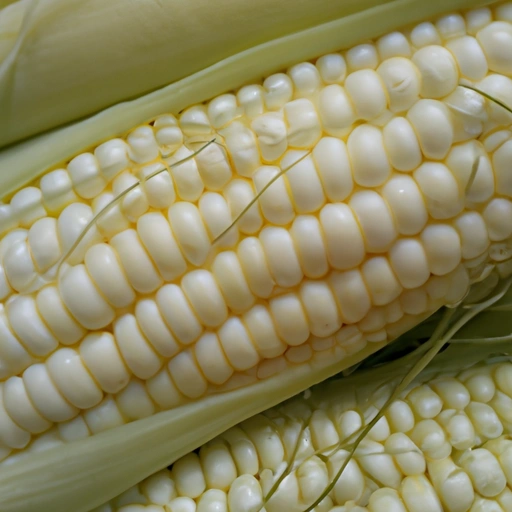White Corn
Description

White corn, a naturally occurring variant of maize, is an iconic grain widely regarded for its sweet, milky kernels and tender texture. Unlike the more common yellow corn, white corn boasts a paler hue and is often preferred for its subtly sweet flavor. It is a cherished ingredient in numerous cultural cuisines, offering a delightful taste and versatility in both savory and sweet dishes.
Common uses
White corn is commonly employed in the preparation of tortillas, cornmeal, polenta, grits, and hominy. It's also used in making popcorn, as a vegetable side dish, and as a key ingredient in soups and stews.
Nutritional value
Calories
White corn typically contains about 86 calories per 100 grams (3.5 oz).
Protein
It provides approximately 3.2 grams of protein per 100 grams (3.5 oz).
Fat
White corn contains roughly 1.2 grams of fat per 100 grams (3.5 oz).
Carbohydrates
It is a good source of energy, with 18.7 grams of carbohydrates per 100 grams (3.5 oz).
Vitamins
This grain is a fair source of B-vitamins, particularly thiamin (B1) and niacin (B3).
Minerals
White corn also provides essential minerals such as phosphorus, magnesium, and zinc.
Health benefits
White corn is a wholesome food that offers dietary fiber for digestive health, antioxidants for cellular protection, and essential nutrients that support overall well-being.
Potential risks
For those with corn allergies or concerns about GMO crops, caution should be exercised when incorporating white corn into their diet.
Common recipes
White corn is often featured in recipes such as cornbread, succotash, chowders, and tamales.
Cooking methods
It can be boiled, grilled, roasted, or steamed, offering a range of textures from crunchy to creamy.
Pairing with other ingredients
White corn pairs beautifully with ingredients like bell peppers, beans, cheese, and herbs such as cilantro and basil.
Summary
White corn is a delectable and adaptable staple food that enriches our meals with its texture, sweetness, and nutritional profile. It is celebrated across various culinary traditions and continues to be a beloved ingredient in kitchens around the world.